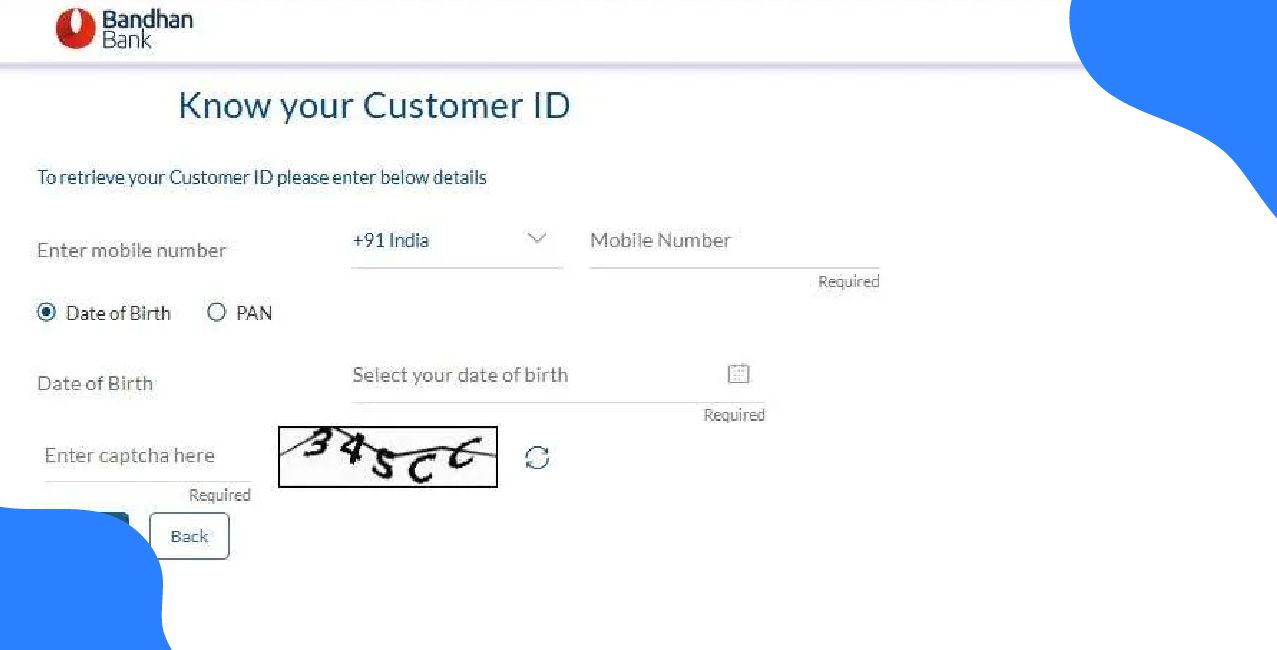What is an NBFC? Meaning, Functions, Types & Importance

Check Your Loan Eligibility Now
By continuing, you agree to LoansJagat's Credit Report Terms of Use, Terms and Conditions, Privacy Policy, and authorize contact via Call, SMS, Email, or WhatsApp
A Non-Banking Financial Company (NBFC) is a company registered under the Companies Act, 1956 or 2013. It mainly deals in loans, advances, investments in shares, bonds, debentures, leasing, and hire-purchase. It does not include companies whose main business is farming, industry, trade, or real estate.
Example:
Ravi wanted to buy a commercial vehicle but could not get a loan from a bank. He approached XYZ Finance Ltd, an NBFC. They offered him a loan quickly with flexible terms.
This example shows how NBFCs step in when traditional banks are unable or unwilling to help, especially for quick or flexible financial needs.
NBFCs like XYZ Finance help individuals and small businesses by offering financial services that banks may not provide.
What is the 50-50 Test?
When we say a company conducts financial activity as its principal business, it means two things must be true:
- Over 50% of its total assets (excluding intangible assets) must be comprised of financial assets, such as loans, shares, or investments.
- Over 50% of its total income must come from these financial assets.
This is known as the 50-50 test, which helps the Reserve Bank of India (RBI) determine whether a company needs to register as a Non-Banking Financial Company (NBFC).
Let us understand this with an example.
Read More – NBFCs No Longer ‘Shadow Banks’, Should Aim to Reach 50% of Commercial Bank Lending: FM Sitharaman
ABC Ltd earns income from both financial and non-financial activities. At year-end:
- Total assets: ₹10 crore
- Financial assets: ₹6 crore
- Income from financial assets: ₹3 crore
- Gross income (from all sources): ₹5 crore
Since 60% of the assets and 60% of the income come from financial activity, ABC Ltd meets the 50-50 test. It must register as an NBFC with the RBI.
However, if a company mostly deals in agriculture, industry, or real estate, and only does a little financial business, it doesn't need to register as an NBFC.
Difference Between Banks and NBFCs
NBFCs (Non-Banking Financial Companies) perform some functions like banks, such as giving loans and making investments. However, they follow different rules and cannot do everything that banks do.
To understand how NBFCs differ from regular banks, let’s look at some key points side by side.
Note: DICGC stands for Deposit Insurance and Credit Guarantee Corporation. It is a part of the Reserve Bank of India (RBI).
So, while NBFCs offer many useful financial services, they still differ from banks in important ways and can’t fully replace them.
Do All NBFCs Need to Register with the Reserve Bank of India?
Yes, most NBFCs must register with the Reserve Bank of India (RBI) before they start their business. As per Section 45-IA of the RBI Act, 1934, no NBFC can operate without a certificate of registration and the required capital.
From 1 October 2022, new NBFCs must have at least ₹10,00,00,000 Net Owned Funds (NOF) at the time of registration. Existing NBFCs must reach this amount by 31 March 2027.
Here’s a simple table showing the difference:
RBI Rules That Keep NBFCs Safe and Stable
The Reserve Bank of India (RBI) sets important rules to make sure NBFCs (Non-Banking Financial Companies) work safely and protect both depositors and investors.
These are just some of the rules. You’ll learn more about how RBI regulates NBFCs in the “Regulations” section.
Key RBI Guidelines for NBFCs:
- Minimum Net Owned Funds (NOF)
NBFCs must keep a minimum amount of their funds. This helps them absorb losses and stay financially stable.
- Capital Adequacy Ratio (CAR)
Like banks, NBFCs must maintain a safe balance between their capital and the risk they take. This ensures they can handle possible losses.
- Liquidity Requirements
NBFCs must keep enough liquid assets, like cash or government bondsto pay off short-term liabilities on time.
- Income Recognition and Asset Classification
RBI tells NBFCs how to record income and loans properly. This helps spot bad loans early and keeps financial reports honest.
- Concentration Limits
NBFCs can’t lend too much to just one borrower or group. This rule spreads risk and avoids big losses from one source.
These rules guide NBFCs to work fairly, stay strong, and protect everyone involved.
Types and Categories of NBFCs Registered with the Reserve Bank
The Reserve Bank of India (RBI) registers and classifies Non-Banking Financial Companies (NBFCs) in the following ways:
1. Classification Based on Liabilities
2. Classification Based on Regulatory Structure (Scale-Based Regulation)
3. Classification Based on Activity
Regulations for NBFCs by the Reserve Bank of India
The Reserve Bank of India (RBI) has set several regulations to ensure that NBFCs remain financially strong and operate with transparency. These rules help NBFCs manage risks and protect customers.
1. Prudential Regulations
RBI requires NBFCs to:
- Maintain enough capital (capital adequacy norms).
- Follow limits on borrowings (leverage ratio).
- Set aside money to cover possible loan losses (provisioning rules).
- Follow sound corporate governance practices.
2. Conduct of Business Regulations
NBFCs must also:
- Follow Know Your Customer (KYC) and Anti-Money Laundering (AML) rules.
- Treat customers fairly by following the Fair Practices Code.
3. Other Regulations
RBI also issues other rules to guide NBFCs in areas like reporting, customer protection, and grievance redressal.
Also Read - Why Most Borrowers Are Choosing NBFCs Over Banks in 2025
Where to Find These Rules?
RBI shares all NBFC-related regulations through:
- Master Directions
- Notifications and Circulars
You can find them on the official RBI website under the ‘Notifications’ section.
Role of NBFCs in the Financial Sector
NBFCs play a vital role in the Indian financial sector. They provide loans, credit, and other financial services to individuals, small businesses, and rural areas where banks may not operate actively. They help increase access to finance, support economic growth, and improve financial inclusion.
Conclusion
A Non-Banking Financial Company (NBFC) is a financial institution that offers services similar to banks, such as loans, asset financing, hire purchase, and investment options. However, NBFCs do not hold a banking licence and cannot accept demand deposits like savings or current accounts.
Even though they are not full-fledged banks, they still follow rules set by the Reserve Bank of India (RBI). NBFCs play a major role in India’s financial system by reaching people and businesses that regular banks often miss. They help improve credit access, especially in rural and semi-urban areas, and support economic growth across the country.
FAQ’s
1. Can NBFCs offer insurance or mutual funds?
Yes, some NBFCs partner with insurers or AMCs to offer insurance or mutual fund products, but they can't underwrite them like a licensed insurance company.
2. Do NBFCs give gold loans or vehicle loans?
Yes, many NBFCs specialise in secured loans like gold loans, vehicle loans, and even small business loans, especially in places where banks are less active.
3. Can NBFCs help people with no credit history?
Yes, NBFCs often serve new borrowers or those with thin credit profiles, using alternate data or flexible methods to assess their creditworthiness.
4. Do NBFCs use technology like banks do?
Yes, many NBFCs now use apps, online platforms, and AI tools to give loans faster, reduce fraud, and serve customers in remote areas.
5. Can NBFCs list on the stock market?
Yes, several NBFCs are listed on Indian stock exchanges and allow investors to buy shares, just like they do with banks and other companies.
Other Informative Pages | |||
About the author

LoansJagat Team
Contributor‘Simplify Finance for Everyone.’ This is the common goal of our team, as we try to explain any topic with relatable examples. From personal to business finance, managing EMIs to becoming debt-free, we do extensive research on each and every parameter, so you don’t have to. Scroll up and have a look at what 15+ years of experience in the BFSI sector looks like.
Subscribe Now
Related Blog Post
Recent Blogs
All Topics
Contents
Quick Apply Loan
Consolidate your debts into one easy EMI.
Takes less than 2 minutes. No paperwork.
10 Lakhs+
Trusted Customers
2000 Cr+
Loans Disbursed
4.7/5
Google Reviews
20+
Banks & NBFCs Offers
Other services mentioned in this article



.png)




